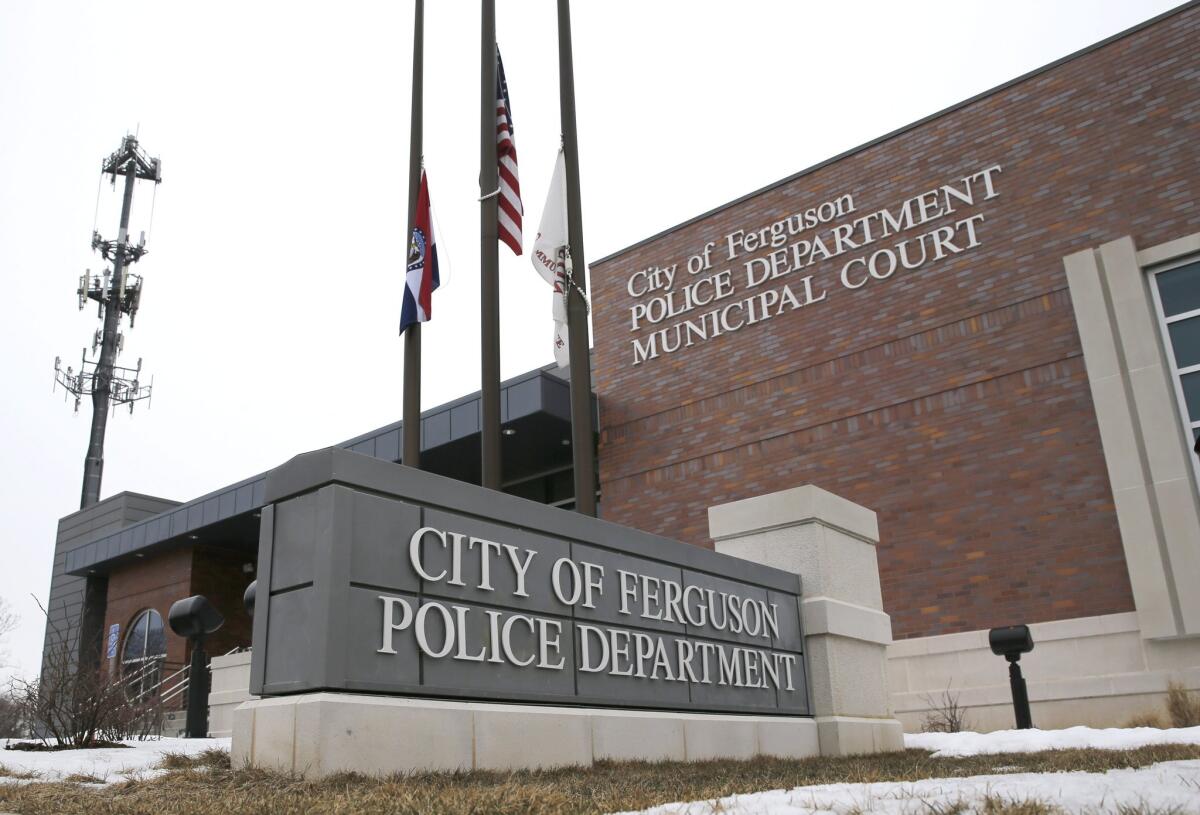Editorial: On institutional racism, Ferguson is like the L.A. of 20 years ago

- Share via
The Justice Department’s conclusion that the city of Ferguson, Mo., routinely violates the constitutional rights of African Americans validates the claims of racial injustice long made by black residents of that small Midwestern city but also by activists nationwide, especially since the killing last summer of Michael Brown, an unarmed black man, by a white Ferguson police officer.
The department’s report, released Wednesday, dissects the lengthy and continuing history of race-based oppression in Ferguson by police and other government institutions, including the court system. It disposes of the many official explanations trotted out to explain black residents’ lack of trust in those institutions, such as the residents’ failure to appreciate how much the city does for them, or their supposed transience as renters, or their susceptibility to pop culture and its expression of alienation. In fact, the mistrust is the result of years of unlawful and discriminatory law enforcement practices.
Although the report is limited to Ferguson, it resonates in cities large and small, and should serve as a reminder that institutional racism is not a myth, nor a relic of the distant past, nor a problem limited to the Deep South. Los Angeles was the subject of a similar report two decades ago, after the police beating of Rodney King; in fact, some of the racist jokes emailed among Ferguson officers are reminiscent of equally abhorrent jokes sent among LAPD officers in the 1990s.
Ferguson may now be at about the point where Los Angeles was when the Justice Department threatened a lawsuit and proposed a consent decree in the wake of the Rampart scandal. L.A. and its Police Department have changed a great deal since then, but eliminating racist jokes, improving police-community communication and hiring officers who better represent the city’s demographic mix, no matter how difficult and work-intensive, were in some sense the easy part.
Today, cities that look more like Los Angeles than Ferguson still struggle with issues that intertwine race with injustice. Mental illness, homelessness, drug addiction and poverty all disproportionately affect African Americans and Latinos and affect how police treat those populations, even in the absence of blatant racism or a Ferguson-like political structure in which white officers police a large black community. Los Angeles cannot afford to be smug about its 20-year jump on Ferguson. This city still has a long way to go to ensure equal treatment of all people under the law.
Follow the Opinion section on Twitter @latimesopinion and Facebook
More to Read
Sign up for Essential California
The most important California stories and recommendations in your inbox every morning.
You may occasionally receive promotional content from the Los Angeles Times.












